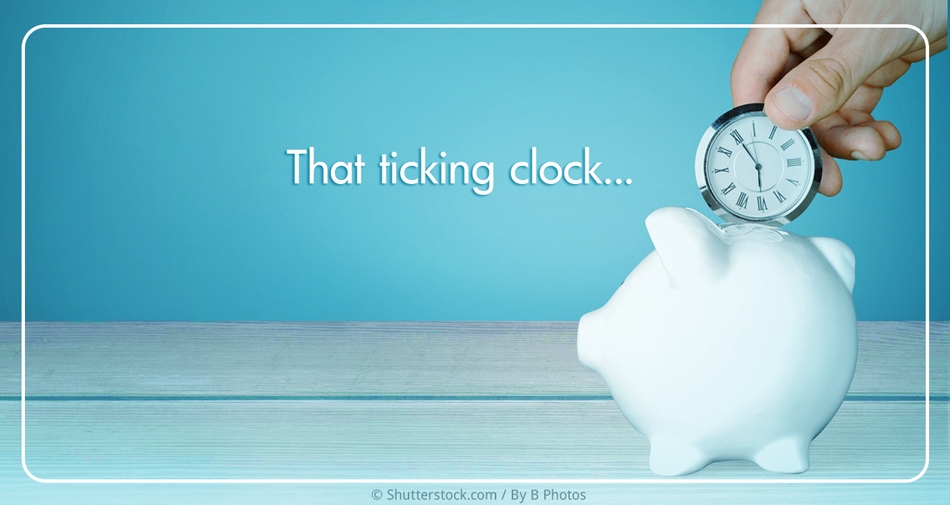
by Darlene Tonelli, March 11, 2019.
In law firms, we’re pretty focused on “time.” So much so that we actually track and add up the time (hours) we spend on a matter, and use that number to charge our clients.
But why? Is this the only way?
Many a lawyer joke has been born of the relentless drive to docket time down to the minute. We have all accepted as gospel the statement that, to succeed, we have to capture every second and make sure we bill it. I remember hearing a lawyer say early in my career that he would docket the time he spent in the shower “thinking about” a matter.
Many more capable commentators have written at length about the issues with the billable hour from the client perspective. My interest in the topic is in how tracking time in six minute intervals is affecting our happiness and fulfillment as a profession.
Why the billable hour?
I tend to start, when asking myself a question like this, by looking at the “story” we’re telling ourselves that is keeping us stuck, and figuring out if it’s true.
I think the story that drives law firms to track lawyer success by the billable hour revolves around the idea that if we can just measure how much time people spend in the office, we can “value” them – and our own work product – properly. I think there is also fear that if we don’t capture every second we won’t be able to run a profitable law firm.
From a law firm perspective, is this true? Let’s look at what we’re afraid of and ask some questions.
- Without billable targets, are lawyers suddenly going to become less productive?
- Are the lawyers who work around the clock really the ones with the skills to be rewarded?
Regarding productivity:
As soon as we start working at firms, we are assigned a target number of billable hours (whether explicitly or implicitly). We quickly develop a mythology around what happens if we do or don’t work those hours – e.g. the person who works the longest hours is the most committed to the firm. This may or may not be true.
I think most lawyers work hard, and are ok with working hard. I don’t see lawyers moving to a state of zero productivity without a billable hour target to keep them at their desk as a real risk.
Regarding rewarding lawyers who work around the clock:
Isn’t working around the clock just one skill in the toolbox of a good lawyer? Sometimes, for lawyers with a natural instinct for helping clients, they can deliver more value in less time. For others, they want to spend the time they need to spend to get the solution for the client, even if all the time won’t be billable.
Furthermore, people who bill less but who do things for the firm that are less easy to measure (like evangelizing to new recruits, building morale, creating FOMO with their social media profile), OR who provide massive value to the client such that the clients evangelize for the firm, may be undervalued if assessed primarily according to the billable hour.
So, is there a better way?
The use of the billable hour to measure the value of a lawyer might be one reason a lot of lawyers in our profession are miserable. We define our success, in part, by meeting a target that involves accumulating hours as an end goal. That isn’t inherently fulfilling – nor is it reflective of what a lawyer is or can be. At the end of our day we have a big list of what we spent our time on – which is great if you love what you do, and terrible if you can’t stand what you’re working on or it’s off-side your values.
The use of the billable hour might also make us less able to help our clients. In the words of Peter Aprile from Counter Tax, the billable hour can “impede lawyers’ ability to solve the problem presented to them by the client”.
What would happen if, instead, law firms hired excellent lawyers and gave them control over their life in the form of the billable hours they will work, within a plan for achieving their lifestyle and professional goals?
At Inter Alia, I spend time with my team trying to figure out where their unique strengths lie so we can best match them with the clients to which they can provide the most value within their lifestyle and professional targets. This can be a long-term plan formulated at the beginning, accommodating, for example, lower hours during family-building years even if those are traditionally the “workhorse” years on the path to partner at a traditional firm.
In my ideal world, each lawyer at a law firm would establish a personal billable target, salary range, target length of time to partner, and areas in which he or she feels best able to contribute uniquely to the success of the firm. More complicated? Yes. Less predictable? Yes. But it would add three key elements to happiness:
- more control over our destiny and ownership of the “plan” for our lives, meaning the feeling we can structure our career in a way that meets OUR lifestyle and financial goals, not someone else’s;
- accumulating billable hours taking its rightful place as one element in a larger value equation of a lawyer’s life; and
- decoupling the idea that the only great lawyers are the ones who work well within the current billable hours and partnership track system.
Why not give it a shot? It seems better to me than assuming a one-size-fits-all approach year after year as associate retention and lawyer misery continues to be a bigger and bigger problem.
Find us on Twitter, LinkedIn and Instagram or listen to us talk more about these ideas on the Lawyer Life Podcast (LLP).

